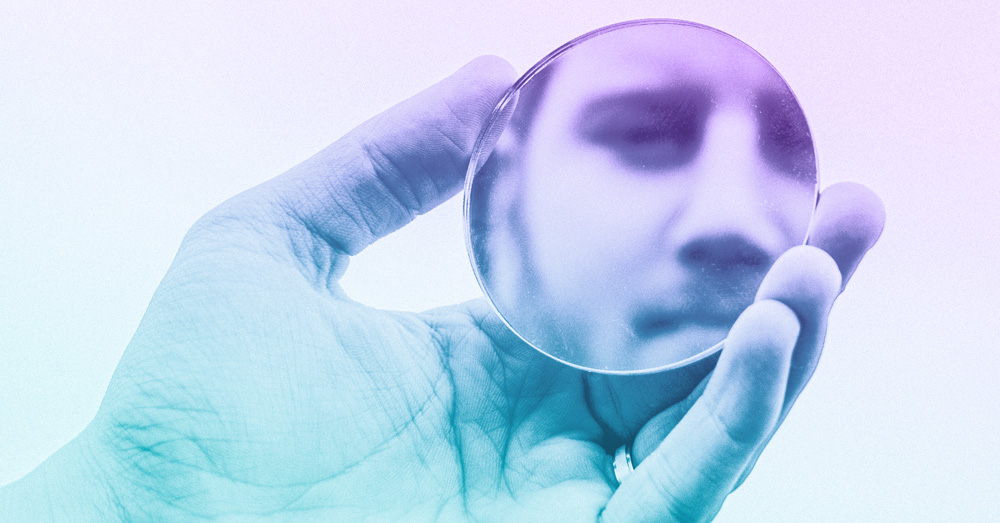Drug Abuse and Aging: Does Drug Use Cause Premature Aging?
In the U.S., about 31.9 million people have used an illegal substance within the last 30 days. To put it into perspective, about 11% of the American population over the age of 12 may have some form of substance abuse disorder. In the last year, about 53 million people misused prescription drugs or tried illegal drugs.
Since 1999, around 841,000 people have died from heroin use alone. Those who suffer from a substance abuse disorder have a lot of health-related worries. In addition to the direct side effects of drugs, those addicted to substances may face the early onset of age-related disease. Most people have witnessed before and after pictures of those who have struggled with drug addiction. People often look older than their peers of the same age.
Can drugs make a person age faster? If so, how does it happen?

What Should You Know About Biological Aging?
Aging is more than just wrinkles and gray hair. Age progresses from optimal performance when you reach maturity to a gradual diminishing of functioning over time. Aging affects your physiological systems and functional characteristics. Your chronological age may indicate an approximation of your status, but biological aging results from your genetics, behavioral factors and how you interact with the environment.
Accelerated aging occurs when your biological age becomes higher than your chronological age. Often, drug addiction involves premature mortality and an early onset of disease. To stop accelerated biological aging, a person needs to receive prompt treatment.
How Does Drug Addiction Affect Premature Aging?
Drug addiction changes a person’s brain. It subverts how a person registers pleasure and corrupts the drive to learn. If you have dealt with addiction in your personal life, be it yourself or your loved ones, you know it influences those suffering. No matter the consequences, addicts still seek out harmful substances. Drugs allow a person to access the brain’s reward system quickly. It floods the nucleus accumbens with dopamine. An addict’s frontal cortical areas are activated when using drugs but then deactivated during withdrawal. Drugs provide pleasure and then strip it away when stopped lead users to live a more dangerous lifestyle.
Consider the years a person suffers from drug addiction as years in which a person is under chronic stress. Stress and substance abuse may cause cellular harm. Additionally, there are strong associations between risky health behaviors and drug use. People who abuse substances may be more likely to try intravenous drug use or engage in unsafe sexual practices. If you take those risks, you increase your exposure to infections. An infection triggers your immune and inflammatory system. When activated, it can speed up your vasculature-aging.
A lot of drug users have limited health care and lower socio-economic status. Additionally, they generally do not eat nutritional food, sleep well or exercise regularly. All of these factors can contribute to rapid aging. If a person uses drugs that alter the sleep architecture, a person may suffer from various age-related diseases. Sleep regulates your neuroendocrine and immune system and without it, you could succumb to illness or disease.
How Do Drugs Cause a Decline in Brain Function?
Aging changes your brain structure. For example, after the age of 40, your brain weight declines by about 5% every decade. Men and women experience the declines differently. Men experience more frontal lobe shrinkage, whereas women lose more of the parietal lobe. People lose neurons, neurotransmitters, synapses and receptors. Unfortunately, for those who use drugs, the process may accelerate.
If you compare a healthy brain with someone who has a cocaine dependence, you will see twice the rate of brain volume deterioration a year in the cocaine abuser. For methamphetamine users, they lose 6.4% to 8.5% of gray matter every year. The pathologies that doctors would typically see in older patients occur much earlier in drug-addicted individuals.
Which Illnesses Affect Drug Users?
Drug addiction may cause irreversible functional and structural changes in the brain, lungs, heart, liver and kidneys. Cocaine-induced injuries to the cardiovascular system are among the most commonly known damages. Conditions include hypertension, ventricular arrhythmias, stroke, myocardial infarction and tachycardia. Electrolyte disturbances, renal failure and liver failure may also is associated with cocaine use.
For those who use amphetamines, cardiac rhythm disturbances are more common and so is sudden mortality. Amphetamines may also generate toxic metabolites and cause hepatic injury. Heroin may lead to chronic brain small vessel disease and heart disease. When you combine heroin with alcohol, you can develop cirrhosis.
Addiction to stimulants, like methamphetamine, may reduce your motor skills and cognitive function. When a person begins to recover from methamphetamine, he or she may regain different motor functions. Severe tooth decay may not affect a person throughout his or her lifetime, but for most, it occurs later in life. Those who struggle with a meth addiction can experience a phenomenon known as meth mouth. Meth mouth is severe tooth decay caused by poor nutrition, dry mouth and teeth grinding from drug use.
Why Does Drug Addiction Affect Appearance?
A person’s skin and overall appearance is not always an indicator of a person’s health. More often than not, however, your skin is affected by what is happening internally. When a person has a drug addiction, he or she will most likely be able to see the impact in the mirror. At first, drug use may do nothing to a person’s appearance. In most people, however, it catches up with them. Since drug use weakness the immune system, you may be unable to fight off infection. Those infections may take a long time to heal and could become worse without treatment.
Substance abuse can deplete nutrients from an addict’s skin. Likewise, an addict’s lifestyle may make it difficult to focus on skincare. Severe dehydration or organ problems may show up on the skin as regular breakouts, fine lines, age spots and other blemishes.
Dehydration may also cause dry, flaky skin. The drugs make it difficult to flush out toxins. When your skin is dry, it becomes even harder to heal wounds and other blemishes on your face.
Drug use may change the color of a person’s skin. Hyperpigmentation, for example, is a condition where a person may have dark patches in different places, particularly in an injection site. The person’s skin may become gray or pale after long periods of substance abuse.
Additionally, a person’s skin may become afflicted with scarring and sores. Some substances, such as methamphetamines, can cause hallucinations and make a person feel like his or her skin is crawling. To alleviate the feeling, addicts may claw and pick at the skin until they have permanent scarring.
Wrinkles are often a sign of aging. No matter how old you are, long-term drug use can cause your skin to wrinkle prematurely. Addicts may also present with bloodshot eyes, sunken eyes and a loss of skin elasticity.
How Can Addicts Steer Clear of Early Aging?
When it comes to addiction and substance abuse, there are clear signs between addiction and accelerated aging. Different drugs may affect a person’s health and wellness differently, based on a variety of factors. Those with a substance abuse problem are more likely to exhibit aging-related biomarkers that would not otherwise be identified in other members of their peer group. Not only do addicts look older, but their bodies suffer illnesses associated with aging too.
The only way to avoid the effects of early aging is to fight addiction. If you or a loved one is struggling with substance abuse, we are here to help. We offer a path to recovery no matter where you are in your addiction. You can be at rock bottom, desperate for change or looking for new tools to help you remain clean in the long term. Contact us at Clean Recovery Centers today to find out how we can help you or someone you love on the road to recovery.
Sources:
- https://www.ncbi.nlm.nih.gov/pmc/articles/PMC5068223/
- https://www.drugabuse.gov/publications/research-reports/methamphetamine/what-are-long-term-effects-methamphetamine-misuse
- https://dualdiagnosis.org/drug-addiction/how-drug-abuse-destroys-your-skin-and-complexion/


